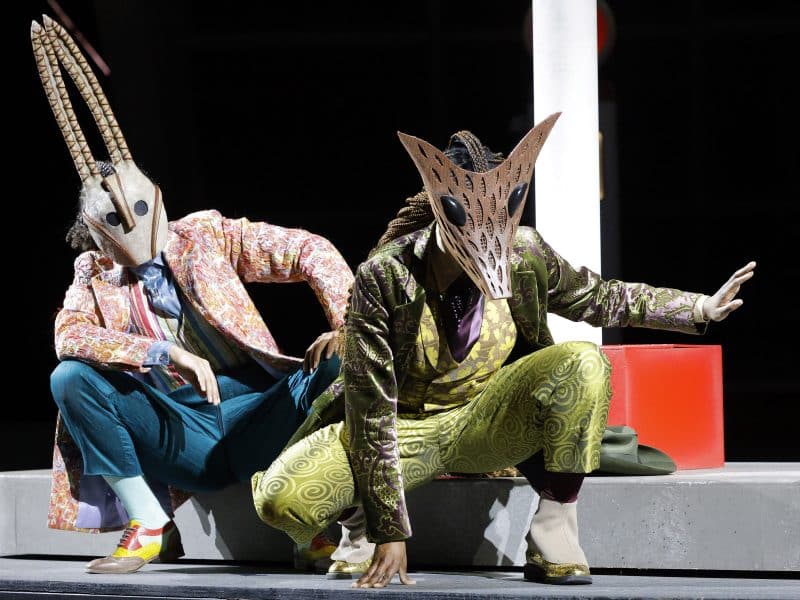Setting the scene: Meet the set designer bringing Detroit visions to life
You've likely seen Tytiana "Ty" Steele's work without realizing it. The set designer and director is behind sumptuous scenes in TV shows like "Queen of the South" and brand campaigns like Barefoot Wine's We Stan with Her, but now the Detroit artist is bringing her talent back to her hometown, starting her own company to help build equity in her industry.
Tytiana “Ty” Steele is a woman behind the scenes. Literally. Steele is the founder of Versara Creatives and, as a set director and designer, she brings film sets and television commercial backdrops to life. Steele’s role sees her selecting, designing, fabricating, and sourcing “set dressing” elements and is in the middle of the film set for a mattress commercial in Detroit when she pauses to discuss the direction of her industry. Her perspective is unique.
Steele realized her passion for set design when she was shadowing art director Chris Craine (known for his film work on Clint Eastwood’s “Richard Jewell” and David Fincher’s “Mank”) in Chicago in 2015. Her enthusiasm clearly left an impression on Craine, who promised that they would work together once she graduated from Eastern Michigan University.
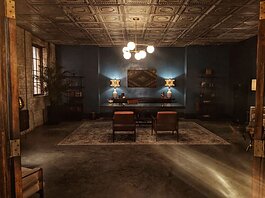
“In 2019 I am in L.A. and I get a call,” Steele says. It was Craine, asking if she could work on the set of season four of television crime drama “Queen of the South.”
“He says ‘how fast can you get to New Orleans?’ I said ‘now.’ I ended up flying back to Detroit, packing up, and in two days had driven down to start.”
Craine says he was impressed with Steele’s work ethic and describes her as a “passionate go-getter” with a positive attitude and direct goals.
“You’d be amazed at how many people just fell into the film industry, I like hiring people who have the drive for it and purposefully sought it out,” he says. “Ty is that person.”
“In the best sense of the term, she’s a hustler.”
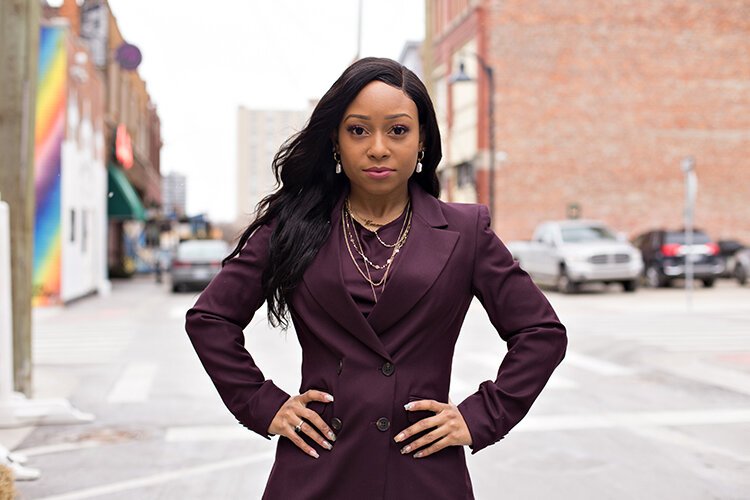
Steele started out as an assistant on the project, but worked her way up to set dresser, and says the experience solidified what she wanted to do. She launched her company early in 2020 and, since graduating, has worked on creative projects for Stock X, Quicken Loans, the Detroit Police Department, and United Way, traveling to locations in the United Arab Emirates, Europe, United Kingdom, and the Caribbean.
But it was working on a commercial a little closer to home that really resonated with Steele’s altruistic goals for her company. In 2020 she worked as the head of the set decoration department for four Barefoot Wine web-based commercials, in a series that aligned with her own aspirations.
“It was specifically for women, in a campaign called ‘We Stan for Her,’ ” Steele says. “It was all about Black women, what we love, what we do, how we are elevating.”
Musician-actress Jordin Sparks, dancer-actress Ashley Everett, and beauty brand owner and founder Melissa Butler starred in the series, which the associate brand manager for Barefoot Shannon Armah says is aimed at “highlighting the brilliance, grace, and beauty of Black women.”
“We hope the discussions shared throughout the series create moments for all Black women to feel seen and celebrated, while also sparking important dialogue amongst viewers,” Armah said in a press release.
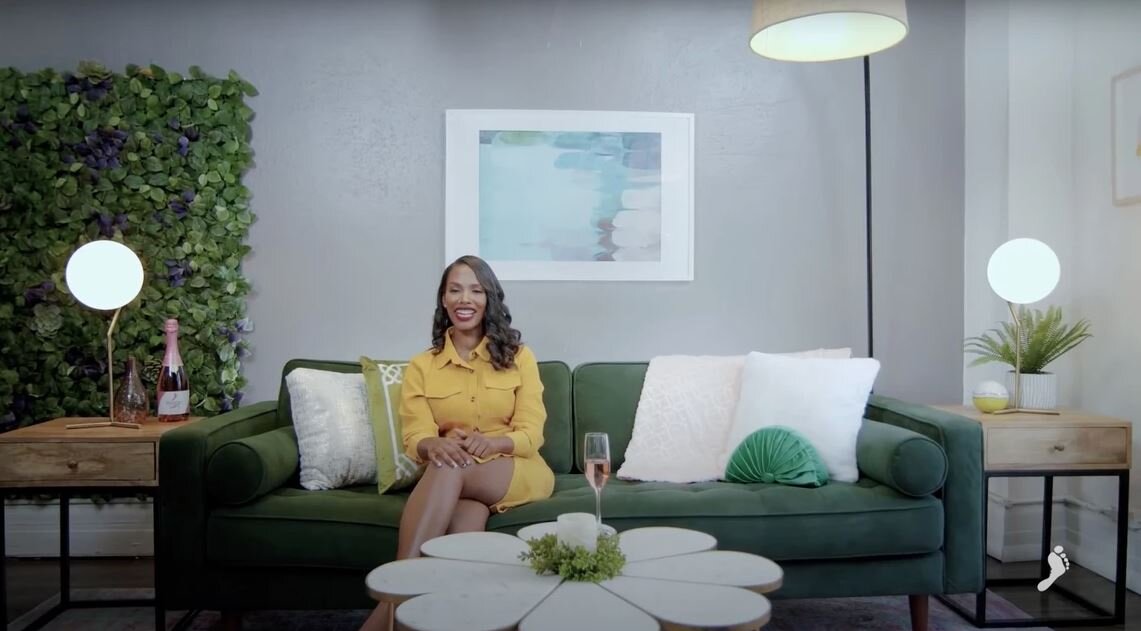
Steele, who turns 25 this year, says she is often the only Black woman on set decoration, and as a young creative she was inspired by the Barefoot project, and particularly with the guest talent.
“It was amazing being a part of a huge campaign that a little girl will look at and say ‘I can do that,’ ” Steele says. “You never see a woman as a head of department for production — it was inspirational and I realized I can do so much more. I was cherished, I was loved and I was appreciated.”
The series felt especially important to Steele as she is conscious of a creative drain on Detroit talent. She wants her company to be a part of producing more wealth for people of color within the marketing and film industry in her hometown.
“We are talented and creative, but we want to go to Atlanta or L.A. to become big,” she says. “I want to bring back that creativity to the city. We have a lot of architecture and resources, I realized I could stay and give an opportunity to people in my own city.”
With providing more opportunities to minorities as a motivation, Steele is working to grow and to hire other talent in her field.
“Women in film is not common,” she says. “We are out here, but we don’t get the chance to do what we love, or someone higher doesn’t give us the opportunity to showcase our work. We have knowledge.”
Steele is part of a growing change within the film and television industry. Across the U.S. in 2019, women comprised 20% of all directors, writers, producers, executive producers, editors, and cinematographers working on the top 100 grossing films, up from 16% in 2018. But there’s significant work to be done. In 2019, 71% of the top 250 films had no female art directors, and a recent report found that women of color make up only around 1.5% of art departments in the nation’s film industry.
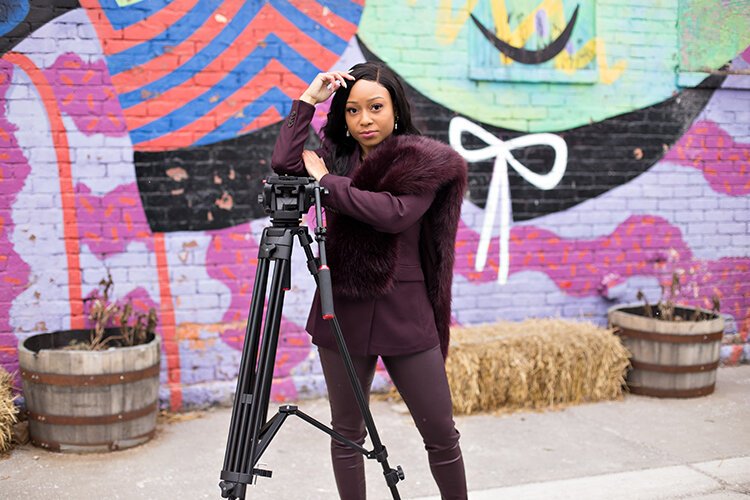
When Steele isn’t designing sets for film and television, she is often immersed in her graphic design and artwork, painting with acrylics and designing logos.
“Art and design is something I use as a stress reliever, sometimes being an over-thinker or perfectionist you can get stuck in your own head,” Steele says. “Doing production helps you dive into something that’s deeper than you, it takes you into a different world, in painting you create your own vortex.”
It’s an escape that has helped during COVID-19. The pandemic hit her business hard, with production completely ceasing for several months. Approximately 75% of her income dried up, with her usual stream of commercials, graphics, and painting revenue halting. She was, however, able to pivot toward graphic design and brand creation to stay busy and is still able to see some bright spots in the pandemic’s impact.
“Most people think COVID took away a lot, but I think it gave us time to sit, to think, to see what’s working and what’s not.”
Financial assistance from TechTown Detroit and a grant from LISC Detroit helped her see Versara Creatives through the crisis as well. With the additional funding, Steele was able to employ an intern during COVID-19, something she saw as important to assist with the inevitable unemployment in her industry during the pandemic, and meet business costs such as insurance payments, bills, and expenses. The grant meant she was also able to purchase equipment and software for graphic design to build that source of income.
This year, Steele has her heart set on hiring more assistants, as she has for the current commercial she is working on, and securing a brick-and-mortar location for studio work. She’s excited.
“Working from home, having props fill up your living room and spare room and bedroom — it can take a toll,” Steele says. “If this year I do nothing else but find an office, that would be amazing.”
This is part of a series supported by LISC Detroit that chronicles Detroit small businesses’ journey in response to the COVID-19 pandemic.



